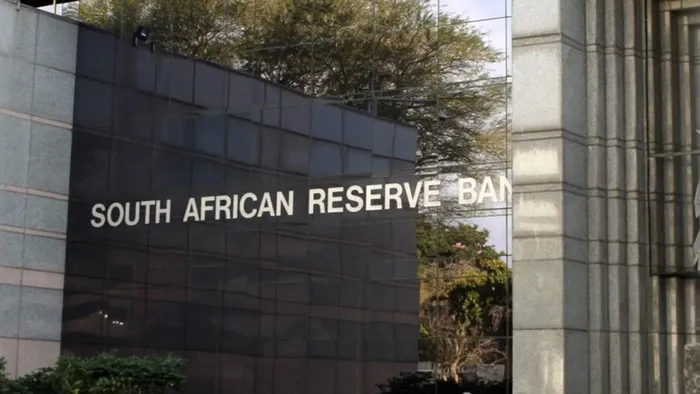
The South African Reserve Bank has lowered interest rates in response to a low inflation rate, but experts warn that rising taxes could still burden households. This article explores the implications of the rate cut and the ongoing economic challenges facing South Africa."
Image: File
The low inflation rate was the driver behind the South African Reserve Bank (Sarb) Governor Lesetja Kganyago lowering interest rates this past week.
Kganyago announced that the central bank's Monetary Policy Committee (MPC) voted to decrease the repo rate from 7.50% to 7.25%.
This means that the prime lending rate in South Africa has been lowered from 11% to 10.75%.
Frank Blackmore, Lead Economist at KPMG told Business Report that the reason for this was the low inflation rate.
Blackmore said, "The Reserve Bank remains data dependent in that respect, as well as the easing of some of the risks such as the exchange rate. Appreciation from the highs over R19, back down to around R18 to the dollar level and as well as the oil prices, which have remained low at this point. They have also taken into consideration that the Value Added Tax (VAT) hike will not take place, also eases future inflation in that respect."
"An interesting analysis was also done by the MPC regarding an upside risk scenario if things worked in the other direction and South Africa would face a kind of stagflation scenario including weak economic growth and tight monetary policy reacting to higher levels of inflation, all caused by perhaps, the trade wars that are currently ongoing globally. Probably more interestingly another scenario where they're reducing the target rate from a current 4 1/2% objective, so the midpoint of the three to 6% range to the 3% objective so the bottom of their three to 6% range. This puts us closer in line with many of our trade partners as well as being closer to the median emerging market rate of around 3%," the economist said.
"In this situation, the benefits would also fall to all South Africans meaning that lower inflation would preserve the value of the earnings and wealth in future periods. Given the low inflation that we are currently experiencing this would be the right time to institute such a change," Blackmore further added.
Neil Roets, CEO of Debt Rescue, told Business Report that the announcement of a BPS cut to the repo rate may be good news for economists, but will not shield South Africans from the burden of the fuel and sin tax levies that have been introduced by Finance Minister Enoch Godongwana within his Budget 3.0 projection.
Roets warned that increased taxing of the workforce is not the answer, referring to the fuel-tax levy and raising sin taxes even higher, and will put further financial strain on households, driving them to new depths of despair.
"This, at a time when they are buckling under the weight of multiple unsustainable inflation-related living costs. The reality is that the Finance minister’s decision to impose new tax measures will hurt lower-income families most, as they will bear a proportionally higher burden, thus forcing them to make impossible lifestyle choices with the little disposable income they have left,” Roets said.
Roets said that Kganyago is a longstanding advocate of shifting to a lower inflation target, arguing this would make the nation better placed to compete with its trading partners.
“A single-point target of 3% would be in line with South Africa’s peers and lead to lower interest rates in the long term,” he has previously said.
"His critics worry that reaching a lower inflation target would require tighter monetary policy however, that would cost growth and employment in a country with one of the highest jobless and poverty rates on earth. The Governor reiterated his view saying that the MPC is of the view that the 3% scenario is more attractive than the 4.5% baseline, and they would like to see inflation expectations move lower, towards the bottom end of their target range. He also said the MPC will consider scenarios with a 3% objective at future meetings," Roets said.
A lower inflation target risks scuppering further interest rate cuts this year too, Investec Chief Economist, Annabel Bishop warned
Bishop said, “With a change to the inflation target reportedly occurring soon this year, the Sarb has chosen to cut interest rates this month to avoid the limitation of doing so in the future, but then could easily be at risk of needing to reverse the cut.”
“The reality is that the slow pace of the country’s repo rate reductions is perpetuating the debt trap that millions of ordinary South Africans find themselves in, leaving millions with no option but to survive on credit,” Roets further said.
